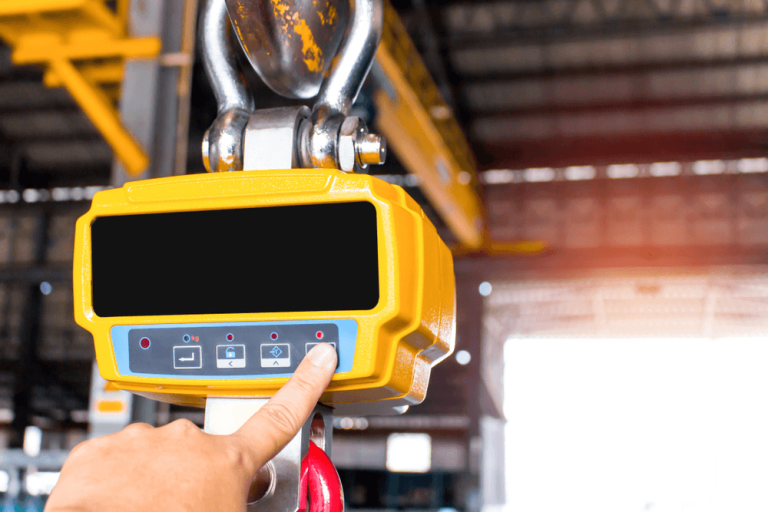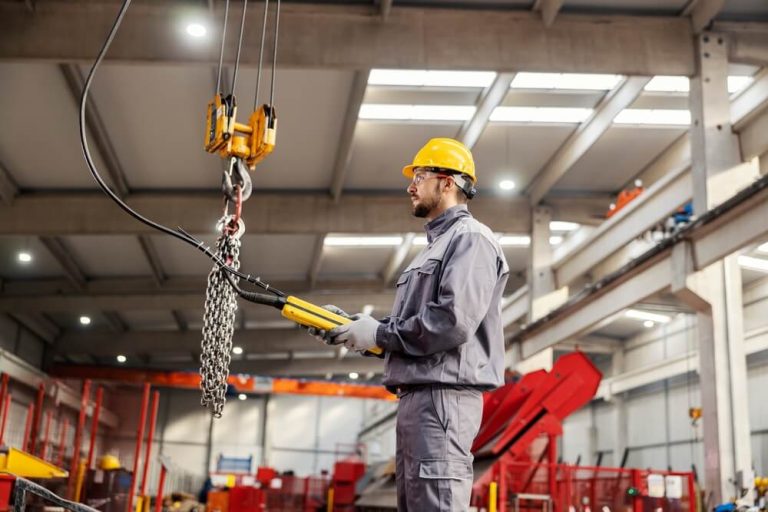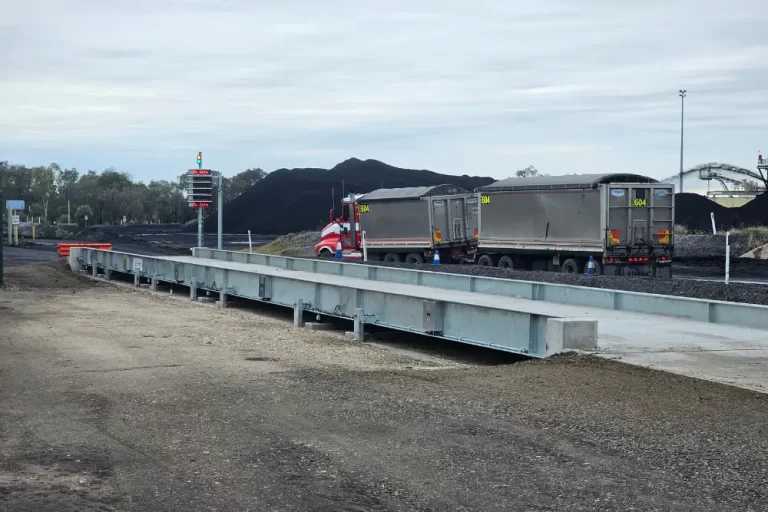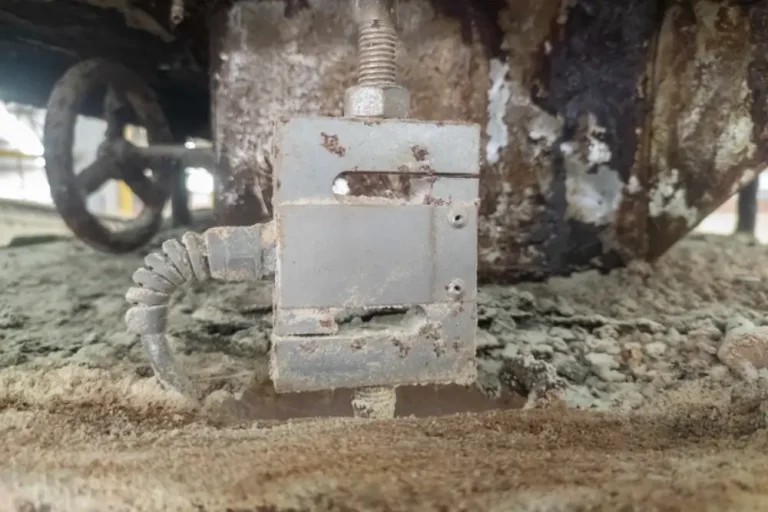Last Updated: January 11, 2024
In various industries, precision is crucial, especially when it comes to measurements. One key aspect of many industrial processes is weighing. Whether you’re measuring raw materials for production or verifying shipment weights for transportation, having the right weighing equipment is indispensable. In this guide, we’ll delve deep into the world of industrial weighing equipment, focusing on its varied types and applications.
Why is Industrial Weighing Important?
Before we venture into the different equipment types, it’s essential to understand the significance of industrial weighing. Weighing is more than just finding out the mass of an object. In industries, it can affect the quality of the end product, the efficiency of the production process, and even the safety of the operations. Using the right weighing scale can:
- Ensure accurate billing for products sold by weight.
- Aid in quality control by ensuring the correct amount of ingredients or materials are used.
- Reduce wastage by helping maintain precise inventory records.
- Ensure safety, especially in sectors where overloading can lead to accidents.
Industrial weighing doesn’t merely serve as a measuring tool but plays a pivotal role in streamlining operations across various sectors. By offering precise weight data, businesses can optimise their production cycles, reduce unnecessary delays, and boost throughput. Accurate weighing minimises errors, which in turn can save costs and time. This efficiency not only ensures a smoother workflow but can significantly enhance overall operational productivity, driving businesses closer to their objectives while maintaining high quality and safety standards.
Furthermore, accurate calibration is integral to the relevance of these industrial weighing systems. Without periodic and precise calibration, even the most sophisticated weighing equipment can give incorrect measurements over time. Misalignments, daily wear and tear, or external factors can impact a scale’s accuracy. By ensuring regular calibration, businesses can maintain the trustworthiness of their weighing data, ensuring every measurement aligns with industry and internal standards. Calibration not only guarantees the reliability of the data provided by these scales but also amplifies the benefits of using such systems. In essence, the combination of industrial weighing and meticulous calibration forms the backbone of many production-centric businesses, solidifying their market reputation and upholding customer trust.
7 Key Types of Industrial Weighing Equipment
In the modern industrial landscape, precise and reliable weight measurement is fundamental to operational efficiency, regulatory compliance, and overall success. Whether in mining, agriculture, pharmaceuticals, logistics, manufacturing, or food processing, accurate weighing equipment is crucial in ensuring that processes run smoothly and effectively. Hunter Weighing specialises in providing advanced industrial weighing solutions tailored to meet the unique demands of these diverse sectors through the following.
Industrial Weight Scale: A general term, this refers to any scale used in an industrial setting. They are designed to handle heavier loads and rougher usage compared to household scales. They come in various sizes and capacities and are often more durable than their non-industrial counterparts.
Industrial Weighing Scale: Similar to the industrial weight scale, this type focuses on providing precise measurements for industrial applications. It can range from a compact bench scale used in a laboratory to massive floor scales for weighing large containers or machinery.
Weighing Scale: This is a broad category encompassing both industrial and non-industrial scales. They are devices used to determine the weight or mass of an object. They can be mechanical (like a traditional balance scale) or electronic.
Commercial Scales: These are designed specifically for commercial applications such as retail, food production, or mail and package weighing. They can be found in grocery stores, post offices, and other commercial establishments. Their primary function is to provide accurate measurements for billing, inventory, or production purposes.
Belt Weigher: Often used in industries that deal with bulk materials like coal, minerals, or grains, a belt weigher (or conveyor belt scale) is integrated into conveyor systems. It continuously weighs material on the conveyor belt, allowing for real-time measurement of the total amount of material processed.
Vehicle Weighing Scales: As the name suggests, vehicle weighing scales are made to weigh vehicles, be it cars, trucks, or specialised industrial vehicles. They can be permanent installations (like those at truck stops) or portable scales that can be moved to different locations.
Scales: A generic term, scales refer to any device, whether industrial or not, that measures weight. This includes everything from a small kitchen scale to a large industrial crane scale.
Scales: A generic term, scales refer to any device, whether industrial or not, that measures weight. This includes everything from a small kitchen scale to a large industrial crane scale.
The evolution of industrial weighing equipment epitomises technological progress, adapting to the diverse demands of modern industries. From the fundamental balance scales to today’s digital and specialised systems like belt weighers and vehicle scales, these tools have significantly advanced. Today’s scales, designed for durability and precision, are crucial for operational efficiency and regulatory compliance. This trajectory of innovation, marked by a shift towards more accurate, reliable, and integrated weighing solutions, indicates a future where these systems will further embed into industrial workflows powered by advancements in digital technologies.
As industrial weighing equipment evolves, so does the potential for weighing errors if equipment isn’t used or maintained correctly. Despite technological advances, common weighing errors—such as improper calibration, environmental interference, and incorrect use of tare and zero functions—can still lead to inaccurate readings. Understanding these pitfalls and following best practices is essential to fully benefit from modern weighing systems’ precision and efficiency.
After-sales support plays a critical role in mitigating weighing errors and maintaining the reliability of your industrial weighing equipment. Services such as routine calibration, technical support, and staff training ensure your weighing systems operate at peak performance, reducing the risk of inaccuracies and extending the equipment’s lifespan.

Choosing the Right Equipment
Given the broad spectrum of weighing equipment, choosing the right one for your needs can be a bit challenging. Here are some factors to consider:
Capacity and Size: Understand the maximum weight you’ll be measuring. It’s always a good idea to select a scale that can handle more than your anticipated weight to avoid overloading.
Choosing the right load cell is crucial for ensuring accuracy and durability in your weighing system. Overloading a load cell beyond its capacity can lead to inaccurate readings or permanent damage. That’s why it’s important to select a load cell that not only matches your expected weight range but also has a safety margin to handle unexpected variations. This ensures long-term reliability and precision in applications like industrial weighing, logistics, and automated systems.
Accuracy: Depending on the industry, even a slight deviation in weight can have significant consequences. Ensure the scale you choose provides the precision you require.
Environment: Some scales are designed for clean laboratory settings, while others are built for rugged industrial environments. Ensure the scale is suited for the environment in which it will be used.
Ease of Use and Maintenance: Some high-tech scales might require specialised training, while others are straightforward. Think about who will be using the scale and how often it might need maintenance.
The Evolution of Weighing Equipment
Weighing has come a long way from the ancient balance scales, where counterweights matched the load. As industries evolved, the need for more precise and efficient weighing led to significant advancements in weighing technology.
Transitioning from Mechanical to Digital: Initially, industrial scales were predominantly mechanical, relying on balance and lever systems. While reasonably accurate, they had limitations in capacity and precision. The advent of technology ushered in electronic or digital scales characterised by load cells and digital displays. These modern scales offer greater accuracy, broader weighing capacities, and seamless integration with digital systems, marking a significant leap in the evolution of weighing equipment.
Safety and Regulatory Compliance in Industrial Weighing
One often overlooked aspect of industrial weighing is safety and compliance. For many industries, especially those that deal with hazardous materials or operate in challenging environments, ensuring that weighing equipment is up to standard can be a matter of life and death.
Calibration: Any weighing scale, regardless of its design or purpose, needs regular calibration. Calibration ensures that the measurements taken are accurate and consistent. For industries where exact weight is critical, like in pharmaceuticals or food processing, regular calibration is not just a best practice; it’s often legally mandated.
Certifications: Depending on the region and industry, scales might need to adhere to specific standards or certifications. For instance, scales used in trade (like those in a grocery store) often must be certified by relevant governmental bodies.
Integrating these practices into your maintenance routine ensures that your industrial weighing equipment remains efficient, safe, and compliant. Regular maintenance in industrial weighing equipment is a strategy for operational success and a commitment to safety and adherence to regulatory standards.

Integration With Other Systems
Modern industrial weighing equipment isn’t just standalone. It’s often integrated into larger systems. For instance, a conveyor belt weigher can be connected to inventory management software, allowing for real-time updates of stock levels. This integration helps businesses streamline operations, reduce errors, and improve efficiency.
Furthermore, the rise of the Internet of Things (IoT) has given birth to smart scales. These scales can connect to the internet, allowing for remote monitoring, data collection, and even predictive maintenance alerts.
Final Thoughts
The world of industrial weighing is vast, intricate, and constantly evolving. From the simple balance scales of ancient times to today’s high-tech, integrated systems, weighing equipment plays a crucial role in countless industries. Whether you’re a business owner, a manufacturer, or someone with a general interest in industrial processes, understanding the nuances of weighing equipment can provide valuable insights into the workings of the modern industrial world. Get in touch with Hunter Weighing for more information on advanced weighing equipment.














